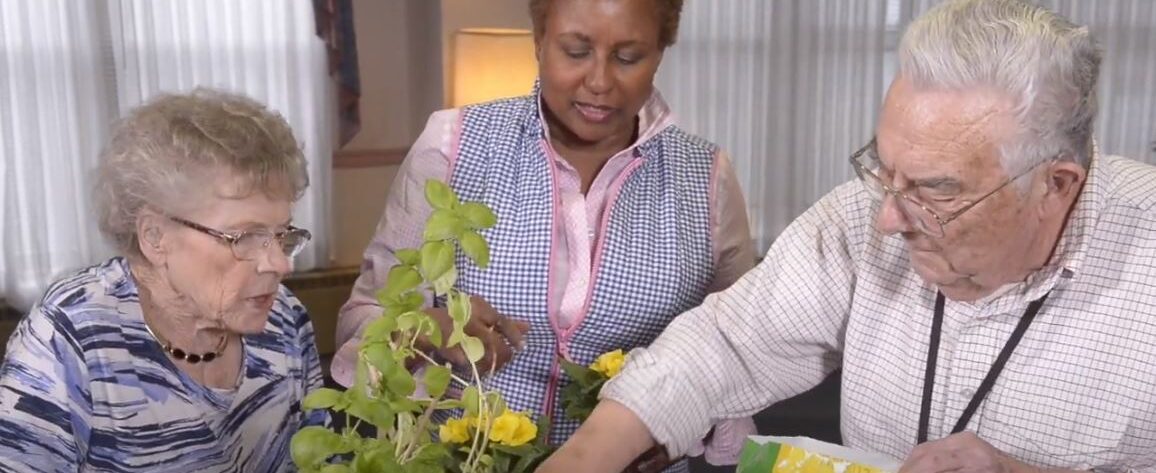What are the Health Benefits of Assisted Living?
Finding the environment that suits your parent’s needs can be challenging – but it’s an act of love that can improve your parent’s well-being and safety.
In comparing the benefits of assisted living communities, it’s important to understand their staffing ratios and caregiving philosophy, their commitment to wellness programs, and what is covered in their monthly fee versus charged as an ‘extra.’ In a broad sense, assisted living helps people who are experiencing physical or cognitive challenges that require monitoring and support. Tasks that may require additional help – such as driving to appointments, cleaning, doing laundry or preparing meals – should be part of the total package, in addition to moderate support with getting dressed, eating, hygiene, incontinence, and medication management. A person-centered community seeks residents’ opinions in how they want their day to progress and honors that. Caregivers take time to get to know the resident and use that knowledge in their interactions. Wellness professionals create opportunities that align with residents’ backgrounds and hobbies.
Sensory surround is critical for assisted living
Sensory surround is thought to be one of the most important aspects in senior living design – inside and out. As you embark on finding the perfect living arrangement for your Mom or Dad, pay special attention to how the community engages all the senses. Look for color, art, light, and textures. Be aware of the aromas, the music you hear in the background, the sensory activities you see, and the emotion you witness from the residents.
Sensory stimulation can physiologically improve the wellbeing of older adults by calling on a positive memory, reinforcing relationships from the past, and providing a sense of calm and reassurance for those who are battling cognitive decline and loneliness.
Sensory overload can backfire and cause agitation and anxiety – too much of a good thing can lead to negative consequences. Striking a balance is key, including spaces where residents can be alone and find serenity, creating programs that promote meditation and quiet time, and creating an environment and staff training programs that foster brain health.
Identifying the best sensory environments
As you study the options for the care of your mother or father (or both), make sure you use your sensory palette:
1. What do you see when you first walk in?
2. Do you hear music playing? Ask about their music programs.
3. What kind of art is displayed?
4. How does the lobby make you feel?
5. Are there walking paths outside to enjoy the fresh air and sunshine?
6. Do they have a garden?
7. What kind of activities are included on a daily basis?
8. Can you smell something cooking? Ask to meet the Chef and sample a meal.
9. What type of physical wellness programs do they offer?
10. Do they have Dementia specialists?
11. Do they have Parkinson’s specialists?
12. Do the residents look like they enjoy it there? Ask if you can speak to a few.
The science behind engaging the senses with aroma, music, and cuisine for health and wellness
Additional research from the National Institute on Aging demonstrates the importance of sensory factors that promote engagement and elevate cognitive expression among seniors. When sensory neurons are stimulated in the brain, endorphins are released that can cause a positive change in behavior and psychology. Aromas can physically stimulate appetite, which can lead to better nutrition. Music can bring a physiological response that can calm anxiety, overcome depression, and improve sleeping patterns. Nutrition can be improved with colorful taste combinations and enjoyable social settings. Understanding how the senses work together creates comfort, calm, and nostalgia, which in turn promotes health and well-being.
The most important sense for you to take into consideration is how the experience, environment and people make you and your parents feel. Asbury wants your loved one to feel right at home. To learn more contact us today!




